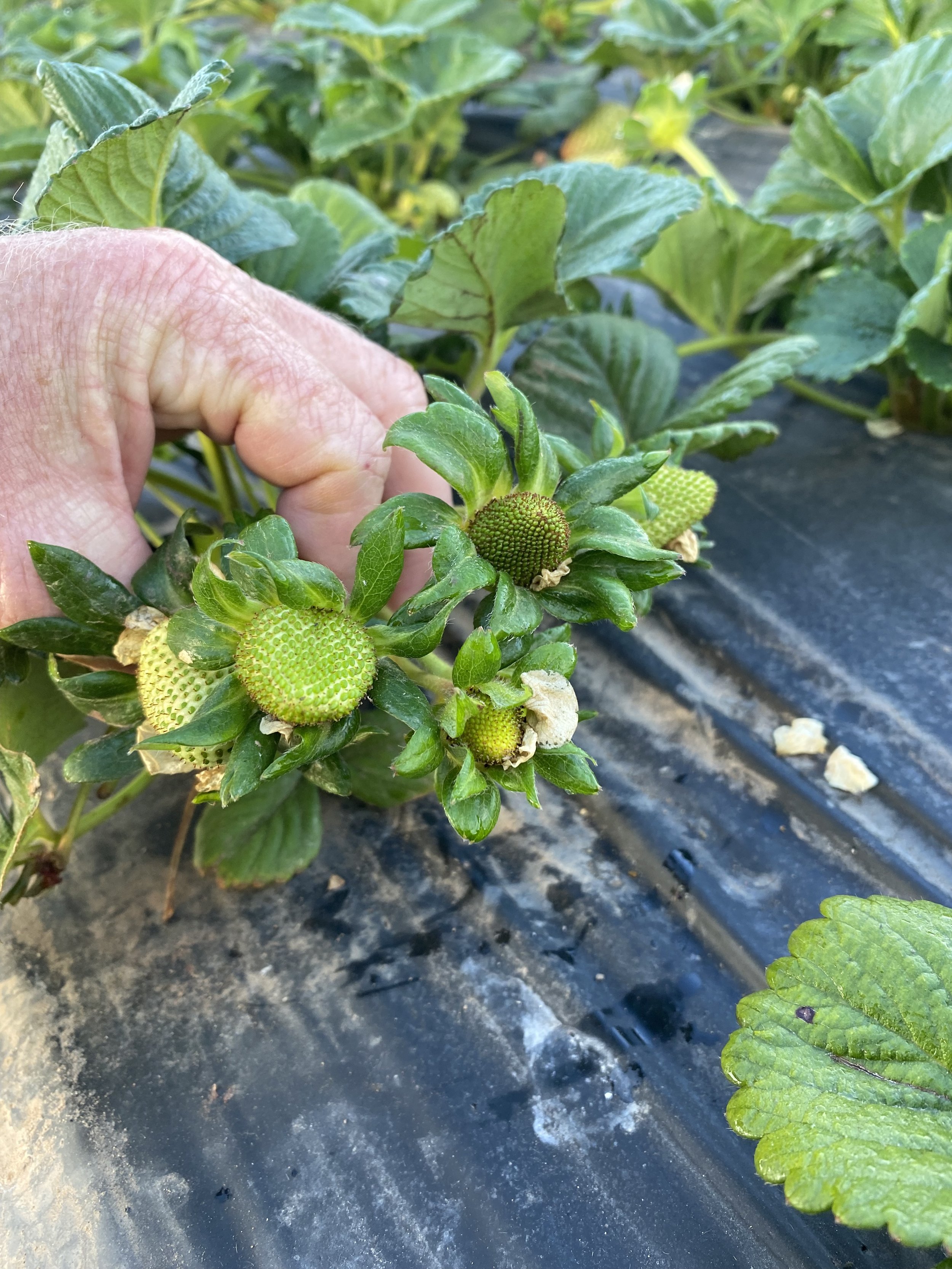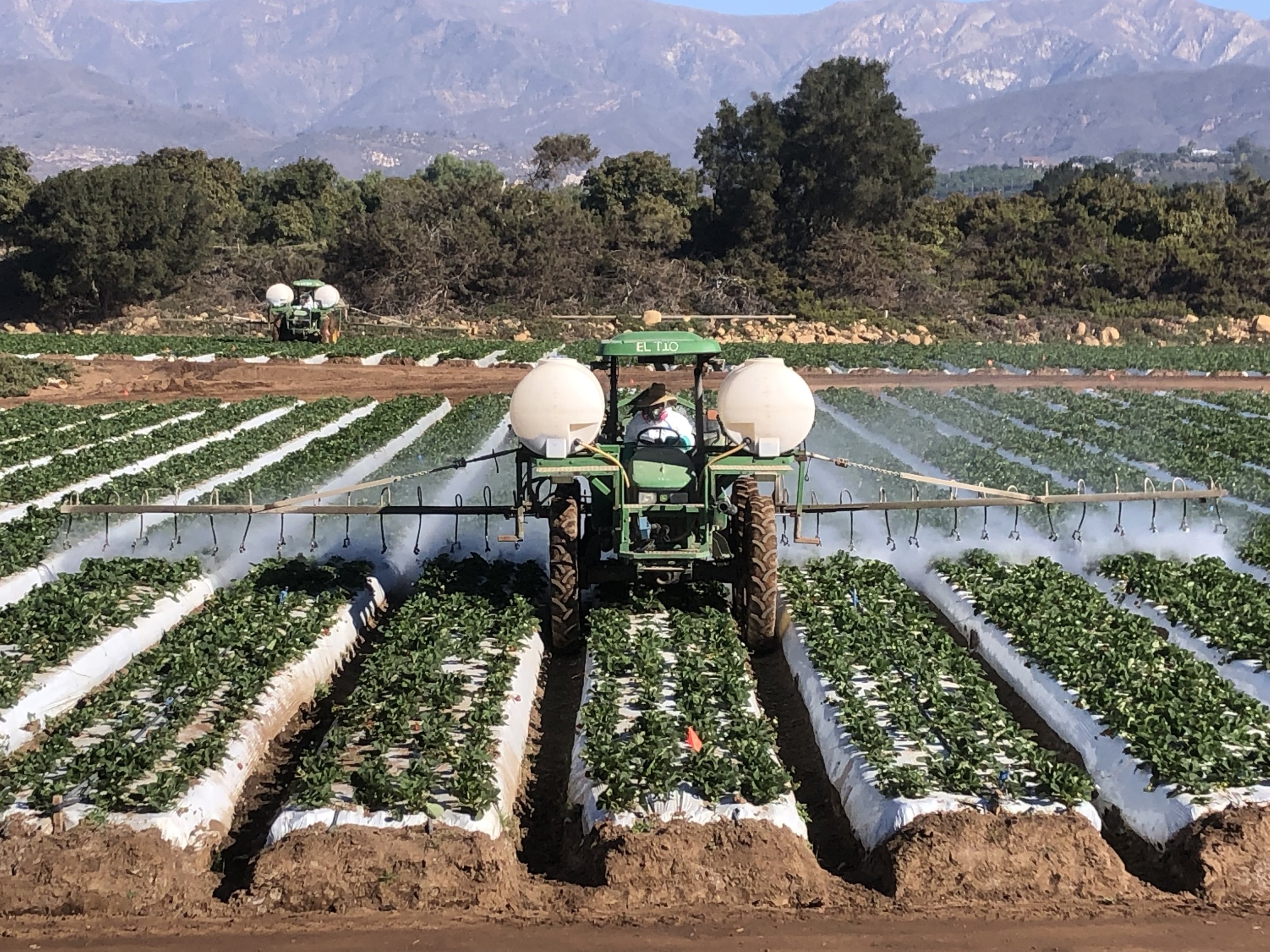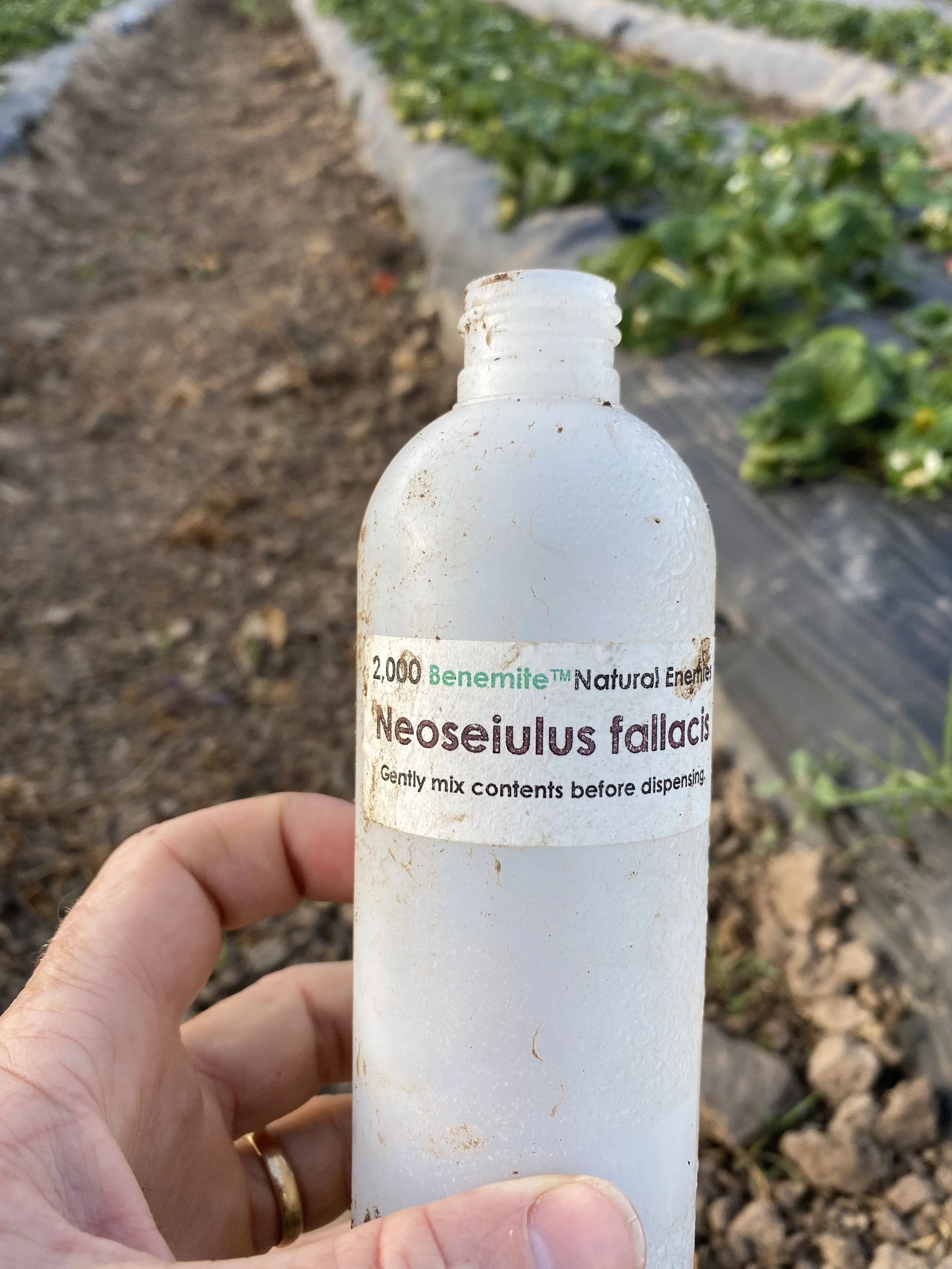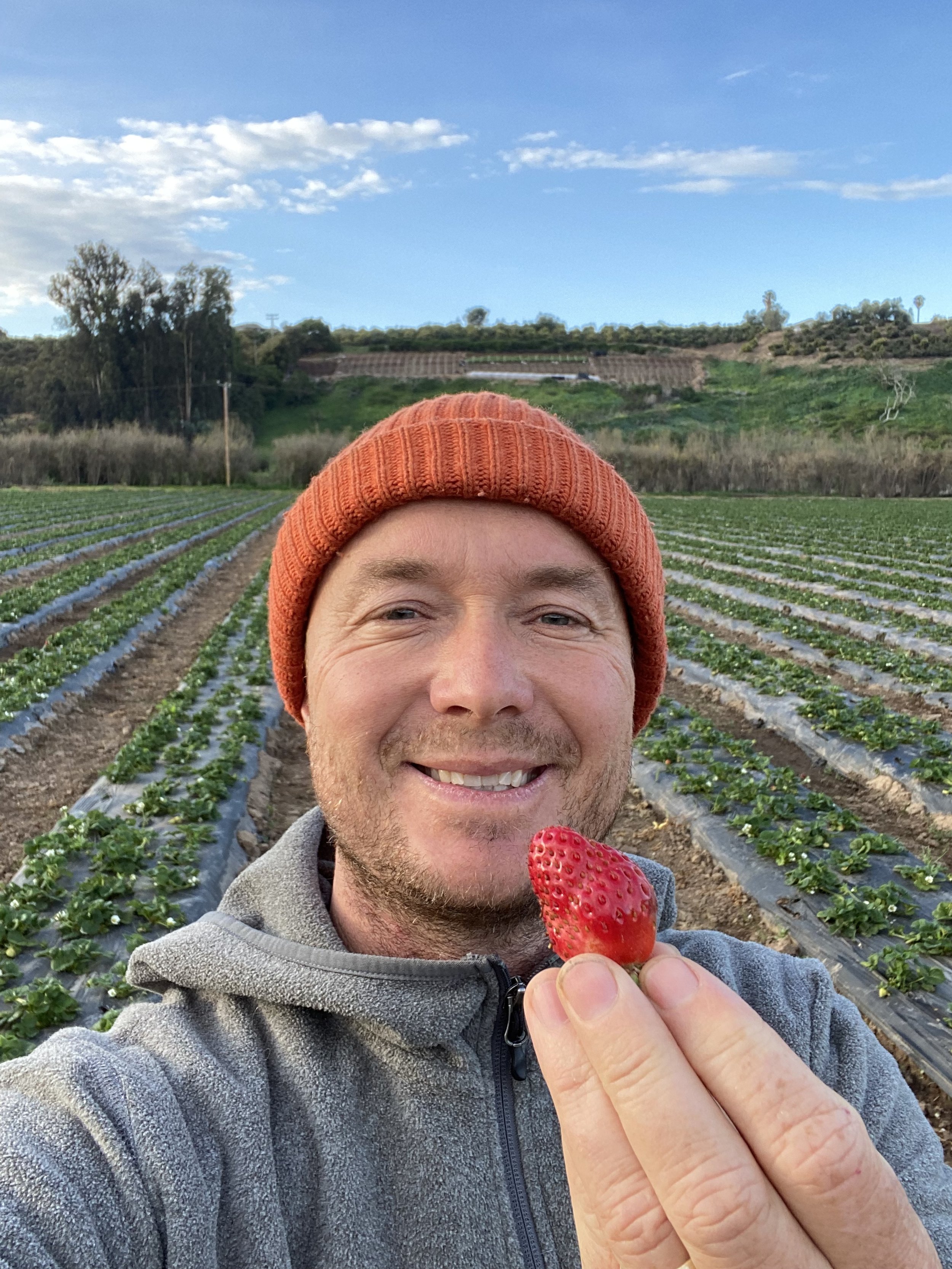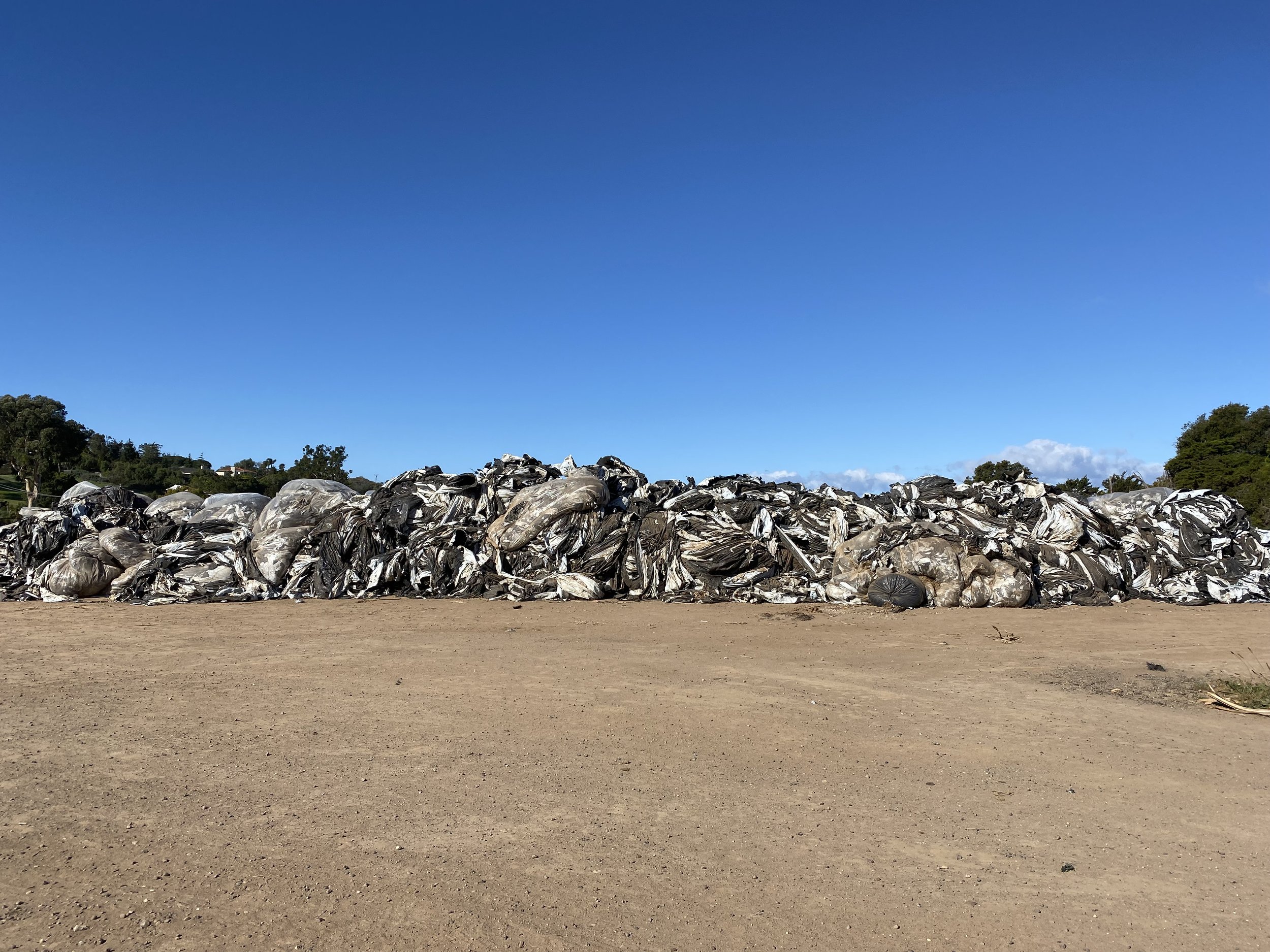Strawberries, Strawberries, Strawberries.
Spring is springing, and strawberries are just around the corner. This is the beginning of the exciting time in the growing season. The coming of the springs first flowering crop, in all of their deliciousness, heralds the arrival of all the flowering crops to come. And where there are flowers, there is the sweet deliciousness of summertime.
Oh, yes. Strawberries signify more than just spring, to a farmer and to people tied to the land, they signify the beginning of the bountiful season. The daylight is getting longer, and there is hope for the future. As much as we love kale, broccoli, cauliflower, lettuces, carrots, beets, potatoes, and citrus. I know that if you are like me, you are starting to crave the flowering crops.
They are coming soon. Barring any more weird, warm then freezing, then warm, then freezing. Alex’s strawberry field looks like we will see fruit in two weeks. Fingers crossed.
After that, the quick growing Zucchinis in about a month, then the sweet peppers in two months, delectable peaches, pluots, apricots, nectarines starting in May, heirloom tomatoes about the same time, and then the delicious melons. Oh the melons.
Ok, enough waxing poetic about the coming season. We are excited.
So, this week, I took an early morning walk through Alex Frecker’s field on Casitas Pass Road in Carpinteria to see how far away these little sweet treats are from being in our Farm Boxes and wanted to share a little bit of what I found there in the fields and give you a little insight into the practice of growing strawberries. Please check out the photos below.
Alex is growing the Moneterey variety of strawberry. They are known for being very sweet, firm berries that set abundant amounts of fruit. You can see here that they set fruit in clusters of 4-5 berries. Their first fruits are big, very big. And they get smaller through out the season. It is also worth noting that Strawberries are unfortunately one of the only crops that truly require the use of plastic mulch.
Spider Mites. OH Spider Mites, How strawberry growers disdain you. As you can see by the discoloration on the underside of this leaf, Spider Mites are present. These little spiders suck the energy out of the plant, and greatly reduce the fruit set.
This is the traditional commercial strawberry growers remedy to Spider Mites. Heavy weekly doses of Pyrethrin Pesticides. This is a sneaky photo that I took of an un-named large commercial grower nearby. Aside from the residues on the fruit, which is hideous for us the consumer, you can see how horrible and dangerous it is for the farmer to work in this environment. Not to mention that Pyrethrine’s are nerve toxins for Bees and other important pollinators and have been shown to contribute to colony collapse disorder.
This little bottle right here, is Alex’s solution to Spider Mites. Rather than spraying the living heck out of his field over and over again, he is releasing thousands and thousands of natural predators in his field to lay eggs, populate, and eat the Spider Mites.
I would never eat a strawberry out of a conventional, commercial field. But I am more than stoked to eat from Frecker’s field when he’s not around, because I know what he is doing. And I stand behind beneficial insects as pest management every day of the week.
With all of that said, here is another sneaky photo of the big commercial field after they pulled all of their plastic mulch from their field. While Frecker is handling insect pests in an elevated manner, we are all still at the mercy of plastic usage in agriculture. As an organization, Farm Cart Organics has been involved in a UCSB Research Project to determine alternative solutions and potentials for better recycling. Unfortunately, or fortunately depending on how you look at things, this is a difficult problem without an easy solution.
I hope you learned a bit about the strawberry growing process along with some of the challenges these farmer’s face. It looks like we’re in for a bountiful season and we can’t wait for all the taste treats to come!

